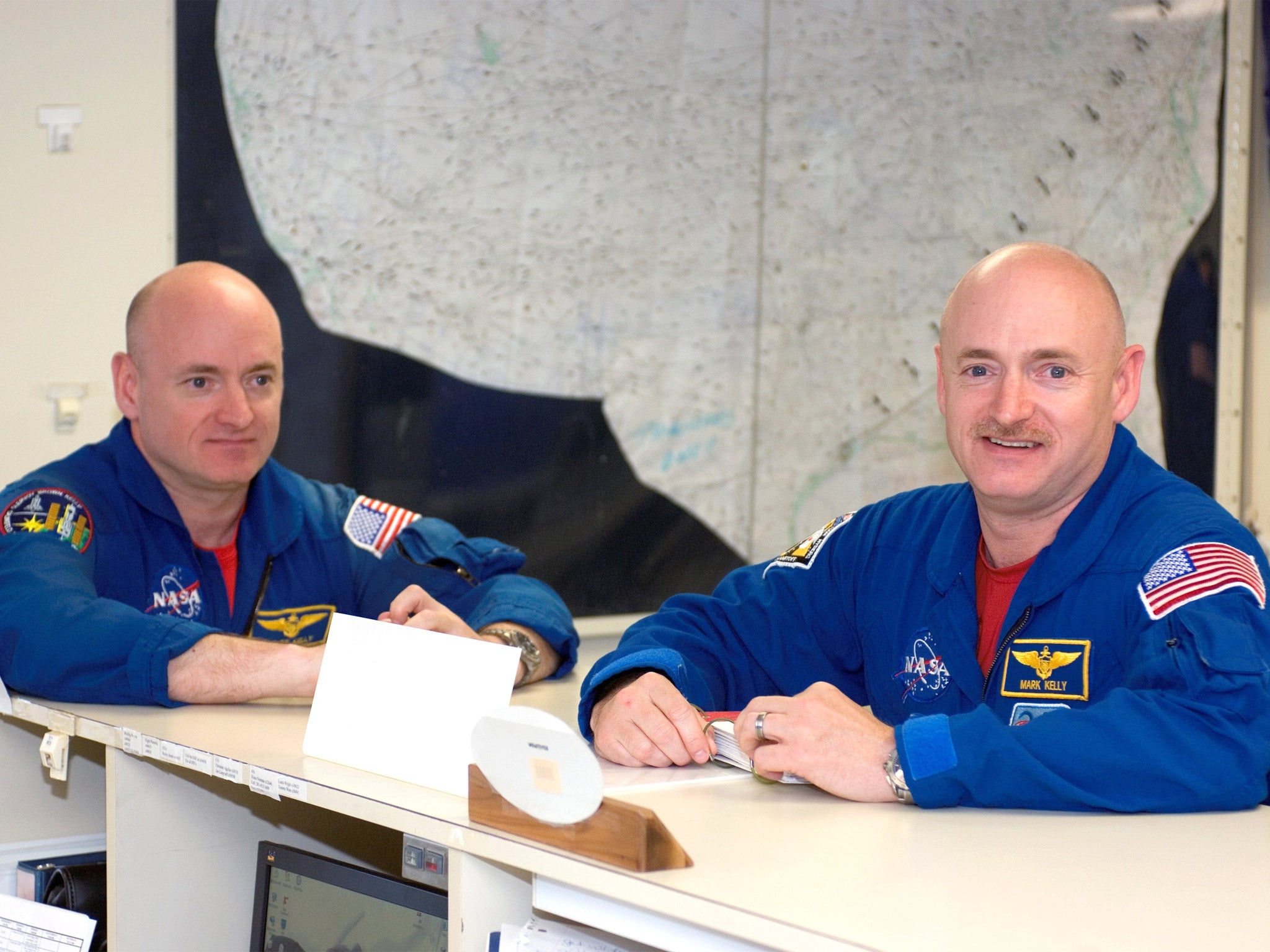Nasa's twin mission to space: Brothers used to study the effects of orbiting the Earth
Scientists to monitor identical twins while one is in orbit and the other remains on the ground

Your support helps us to tell the story
From reproductive rights to climate change to Big Tech, The Independent is on the ground when the story is developing. Whether it's investigating the financials of Elon Musk's pro-Trump PAC or producing our latest documentary, 'The A Word', which shines a light on the American women fighting for reproductive rights, we know how important it is to parse out the facts from the messaging.
At such a critical moment in US history, we need reporters on the ground. Your donation allows us to keep sending journalists to speak to both sides of the story.
The Independent is trusted by Americans across the entire political spectrum. And unlike many other quality news outlets, we choose not to lock Americans out of our reporting and analysis with paywalls. We believe quality journalism should be available to everyone, paid for by those who can afford it.
Your support makes all the difference.While growing up, Mark and Scott Kelly supported different baseball teams. They also chose different universities. But, to the relief of Nasa scientists, that is about as distinct as the identical twin astronauts became.
Now the unlikely scenario of finding two indistinguishable spacemen is to be harnessed to the cause of science. Nasa has revealed that one will be put in a rocket and the other kept on the ground as part of a study on the effects of orbiting the Earth.
Scott, who is six minutes younger than his brother, will blast off in a year from now to spend 12 months aboard the International Space Station – twice the normal duration of a stay on the facility and the longest ever by an astronaut.
In the meantime, Mark, who retired as a Nasa commander after taking charge of the penultimate flight of the space shuttle programme in 2011, will be monitored on terra firma as the ultimate “control” subject for his brother.
The twins will be the subject of 10 separate investigations, costing a total of $1.5m (£900,000) and ranging from the effects of space travel on their digestive tracts to a study into how genes react as a result of being in orbit for a prolonged period.
As part of the study, the men will be given flu jabs to shed light on how space changes the immune system. They will also have their full genomes mapped.
Craig Kundrot, deputy chief scientist of Nasa’s human research programme, said: “This is a unique opportunity. We can study two individuals who have the same genetics but are in different environments for one year.”
For the Kelly brothers, who are both 50, the experiment, which will also continue once Scott returns to Earth, is the latest in the long pattern of coincidence that defines their lives. After graduating they became US Navy captains and were selected for both the same test pilot and then astronaut training classes.
They have also both flown as pilot and commander of space shuttle missions.
Mark Kelly, who has been into space four times, is married to Gabrielle Giffords, the former Congresswoman who was shot in the head in 2011 during an apparent assassination attempt and astonished many with her recovery.
The twins, who came up with the idea of the study, are ready to go to extraordinary lengths to gather new data.
Scott told the New York Times: “I volunteered to have them put a pressure probe in my skull. I thought it would be kind of cool to have a little bolt.”
Join our commenting forum
Join thought-provoking conversations, follow other Independent readers and see their replies
Comments